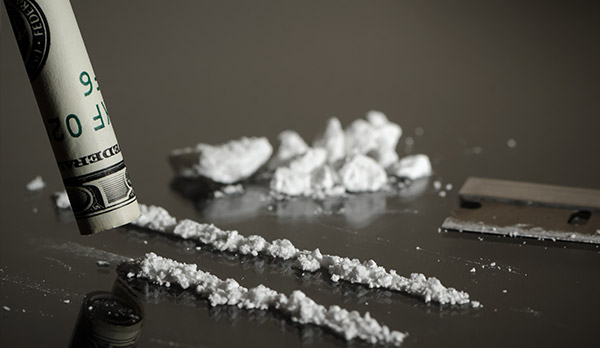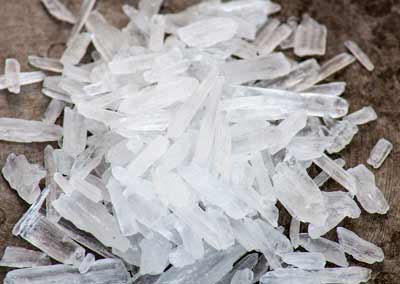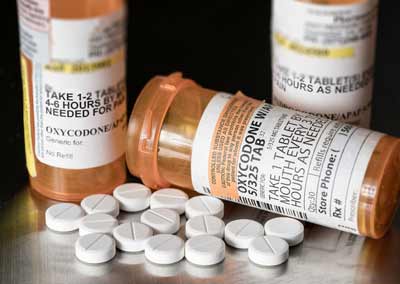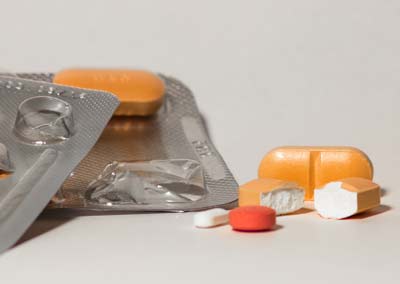
Cocaine Addiction
Cocaine, widely known simply as “coke,” is derived from the coca plant, which is native to South America. Indigenous South Americans have been using coca for generations as a stimulant and anesthetic -- evidence of chewing coca leaves can even be traced back to ancient Peruvian civilizations. In the mid-1800s, German chemists discovered that the chemical compound in the coca plant responsible for its effects could be isolated. The compound, which they named cocaine, was quickly adopted in medical circles for its anesthetic properties. But a general lack of restrictions on the substance led to its use in a variety of easily accessible products, including elixirs, cigarettes and supplements. The drug became popular recreationally among people from all walks of life, from soldiers to socialites. As cocaine’s addictive properties became increasingly evident, the backlash against its widespread use increased. Eventually, it became classified as a Schedule II drug in the United States, which means it has a few limited medical uses but is tightly regulated due to its high potential for addiction. Today, it remains the second most popular illegal drug in America after marijuana, with an estimated 1.9 million users over the age of 12 in 2016 alone.
What is Cocaine?
Coke as a modern street drug is a far cry from the natural leaves of the coca plant. After the cocaine compound is extracted from the plant’s leaves, its high concentration brings more powerful effects that lead to stronger highs, more intense cravings and eventually addiction. Coke is usually sold as a white powder, and is also commonly found in “rock” form as crack cocaine. It can be snorted, injected, taken orally or smoked. According to the 2016 National Survey on Drug Use and Health, cocaine is most often used by those between the ages of 18 and 25. It is commonly considered a “party drug,” used in social settings, because of its stimulating effects. Cocaine can make you feel more energetic, more talkative, less inhibited and more positive. The effects of one dose typically last about 30 minutes, which usually leads to users taking multiple doses in a single evening so they can maintain their high.
Cocaine’s Effects on the Brain and Body
Coke is classified as a stimulant drug, which means it speeds up certain processes in the brain to produce a high. Most importantly, cocaine stimulates the production of a neurotransmitter called dopamine, which is associated with brain functions like rewards pathways, pleasure and mood control. When you use cocaine, the surge of dopamine makes you feel happy, energetic, sociable and alert -- all positive sensations that lead users to enjoy cocaine and usually use it again. But even though dopamine occurs in the brain and can help you feel good without drugs, the amount of dopamine from a natural response is not as intense as from a drug high. With repeated or abusive use of cocaine, your brain can become accustomed to the elevated levels of dopamine -- without the drug, you won’t be able to experience life the same way as you used to. In fact, day-to-day life can become difficult as you struggle to feel happy or awake in a sober state. This slippery slope leads quickly to addiction, which only worsens your mental state and can also take a toll on your body physically. Among other physical effects, there are a few that stand out. One of the most potentially harmful aspects of cocaine is its ability to suppress the appetite. Long-term coke users may skip meals frequently to the point of drastic weight loss and malnutrition. Coke also causes the heart to beat rapidly when high, which over time compounds into high blood pressure, weakened blood vessels and an increased risk of heart disease or an aneurysm. In cases of overdose, coke can be fatal when the heart rate increases to the point of a heart attack. Finally, in users who typically snort coke through the nose, a host of concerns can arise including weakened nasal passages, loss of smell and even damage to or collapse of the septum.
Signs of Cocaine Addiction
If you are worried about someone close to you, you might be wondering what the signs of cocaine addiction are. Behavioral signs tend to arise first, usually in the form of personality changes and changes in interests or friend groups. Their actions may become aggressive or unpredictable, or you might notice that their mood changes drastically. Sporadic bursts of energy, positivity and talkativeness might indicate that someone is getting high. You might also notice dilated pupils, twitching or a short attention span. Other signs can include:
- Inability to maintain responsibilities
- Unreliability
- Nosebleeds
- Financial difficulties
- Rapid weight loss
- Legal trouble

PARAPHERNALIA
Rolled up bills, hollowed-out pens, straws, and powder on smooth surfaces are all signs of cocaine use.

unmanageability
As cocaine addiction takes hold, it becomes harder and harder to keep up with regular responsibilities.

SLEEP HABITS
Users will often stay awake for long periods of time. This is usually followed by “crashing” for a few days.

MOOD SWINGS
As a stimulant, cocaine often creates mood swings – periods of intense energy, followed by depression.
If any of these signs are recognizable in yourself or your loved one, the Tree House Recovery team urges you to reach out for help right away. Cocaine addiction is destructive to your life, your health and your happiness, but there are ways to heal, and it’s never too late. Seeking professional treatment for cocaine addiction is the best way to get clean and start fresh with a new, sober lease on life.
Treating Cocaine Addiction
Although the vicious cycle of addiction can seem impossible to escape, don’t lose hope -- effective treatment is available to help you heal from cocaine addiction. When it comes to cocaine, it is often most helpful to find a treatment center that can help you heal physically as well as mentally with a combination of cutting-edge therapies. Tree House Recovery uses this model to provide an individualized and holistic recovery experience -- our treatment methods include talk therapy, yoga and fitness therapy, writing therapy and more so that you can find the path to recovery that works for you.
We also focus on teaching important life skills so that you can learn to take control of your addiction even when you leave our programs. We can help you overcome your negative habits and replace them with healthy hobbies and coping mechanisms. When you feel confident in yourself and your ability to live a sober life, you can truly leave addiction behind and find recovery without relapse.
Contact Tree House Recovery PDX
Tree House Recovery in Portland, Oregon is a treatment center for men struggling with addiction to drugs or alcohol. We offer programs that focus on holistic and sustainable recovery with a mission to bring healing to everyone who seeks it. We are equipped to treat addictions to a range of substances including cocaine and alcohol as well as many other drugs. To find out if recovery with the Tree House team is the right fit for you or your loved one, don’t hesitate to reach out today. Call our admissions team as soon as you are ready at (503) 850-2474.

 Learn More & Get Help
Learn More & Get Help



